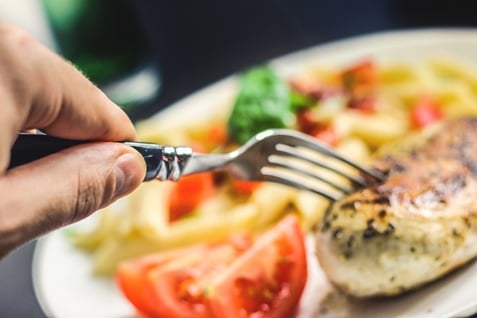We all feel good when we opt for green lunches, but going truly ‘Green’ extends beyond munching on the healthy salad option. What about the cutlery you use? Is it ‘Green’ cutlery or plastic that you’ll toss in the bin?
The thing is that, while eating healthily is certainly good for you, it is not always good for the environment. And even if your local sandwich bar proudly delivers its triple-deckers in bio-degradable packets and wrappings, is the little spoon with your tomato and basil soup the same?
The good news is there are plenty of options available to those that wish to make the change to more eco-friendly utensils – without resorting to using your fingers, that is!
The list of ‘Green’ cutlery options basically falls into two categories: reusable and biodegradable. But it is the bio-degradable (or compostable) that is attracting our attention mostly.
Bio-degradable Cutlery Options
- Celeplast or PSM (Potato Starch Material) – How much more eco-friendly can cutlery be when you know they have been made from potatoes? They look just like plastic cutlery, but are completely bio-degradable and are strong enough to handle even steak. They are also heat resistant up to a temperature of 205 F, so are quite durable.Be warned, however, that a second version of PSM is also on the market. Known as Plastized Starch Material, it is made with 20% petroleum-based resin, so is NOT bio-degradable. Be sure to check which type of PSM the caterers are providing.
- PLA (Poly Lactic Acid) – Made from corn, this plastic is 100% bio-degradable, but the plastic is hard enough to hold out when handling solid food. They are just as strong as the regular plastic products on the market, but they can only handle temperatures up to 110 F. When they are used and set for composting, the material takes between 60 and 90 days to decompose.
- Wood – As you might expect, wooden knives, forks and spoons are very much eco-friendly. The choice of wood used for wooden cutlery includes hardwoods like birch, maple and fast-growing bamboo. Lightweight but sturdy, they can handle any temperature, and are manufactured from chemical-free processes.
Reusable Cutlery Options
- Metal Cutlery – It may be a no-brainer but we thought we’d mention it anyway. The beauty of these is that they can last for years. Many office kitchens have real cutlery, and simply wash them after use. They do tend to disappear over time, which perhaps makes the second option so attractive.
- Bring Your Own – By taking your own cutlery to work, you don’t actually need any utensils from the food supplier. The equation is simple: no disposable cutlery required means no extra waste.
Finding Restaurants or Suppliers
Luckily, when it comes to finding a restaurant that use bio-degradable or compostable cutlery, there isn’t much trouble.
No business is shy about promoting its ‘Green‘ ethics, so all you need to do is take a look around to find a restaurant or sandwich bar close to you. You can also check out the Greenfinder.com.au, a site that lists thousands of eco-friendly businesses and their products.
Sources:
- ‘Compostable Cutlery, Biodegradable Cutlery: The Newest in Green Cutlery Options’, Mr Take Out Bags blog.
- ‘Compostable Cutlery Made From Cereplast’, Treehugger.com.
- ‘What are the Pros and Cons of Using Wooden Cutlery?’, Wisekgeek.com.
Food and Glass Wipes
Alsco’s reusable wipes are a cost effective, efficient and environmentally friendly way to wipe down and clean up just about any surface. Made from 100% cotton, our kitchen wipes are durable and absorbent. They are also compliant with HACCP and workplace health and safety regulations. Alsco food and glass wipes are collected, laundered to Australian Quality Standards and delivered back to you, our customer, ready for use and reuse. Best of all, with our managed rental system there’s no capital outlay.
Image Courtesy: Pixabay


LEAVE A REPLY
Your email address will not be published. Required fields are marked *
You must be logged in to post a comment.